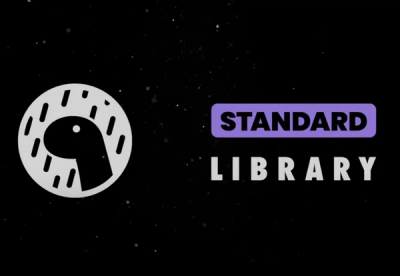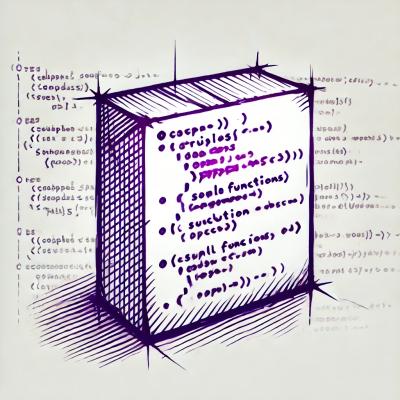






mdast extensions to parse and serialize GFM footnotes.
Contents
What is this?
This package contains two extensions that add support for GFM footnote syntax
in markdown to mdast.
These extensions plug into
mdast-util-from-markdown (to support parsing
footnotes in markdown into a syntax tree) and
mdast-util-to-markdown (to support serializing
footnotes in syntax trees to markdown).
GFM footnotes were announced September 30, 2021 but are not specified.
Their implementation on github.com is currently buggy.
The bugs have been reported on cmark-gfm.
When to use this
You can use these extensions when you are working with
mdast-util-from-markdown and mdast-util-to-markdown already.
When working with mdast-util-from-markdown, you must combine this package
with micromark-extension-gfm-footnote.
When you don’t need a syntax tree, you can use micromark
directly with micromark-extension-gfm-footnote.
When you are working with syntax trees and want all of GFM, use
mdast-util-gfm instead.
All these packages are used remark-gfm, which
focusses on making it easier to transform content by abstracting these
internals away.
This utility does not handle how markdown is turned to HTML.
That’s done by mdast-util-to-hast.
If your content is not in English, you should configure that utility.
Install
This package is ESM only.
In Node.js (version 16+), install with npm:
npm install mdast-util-gfm-footnote
In Deno with esm.sh:
import {gfmFootnoteFromMarkdown, gfmFootnoteToMarkdown} from 'https://esm.sh/mdast-util-gfm-footnote@2'
In browsers with esm.sh:
<script type="module">
import {gfmFootnoteFromMarkdown, gfmFootnoteToMarkdown} from 'https://esm.sh/mdast-util-gfm-footnote@2?bundle'
</script>
Use
Say our document example.md contains:
Hi![^1]
[^1]: big note
…and our module example.js looks as follows:
import fs from 'node:fs/promises'
import {fromMarkdown} from 'mdast-util-from-markdown'
import {toMarkdown} from 'mdast-util-to-markdown'
import {gfmFootnote} from 'micromark-extension-gfm-footnote'
import {gfmFootnoteFromMarkdown, gfmFootnoteToMarkdown} from 'mdast-util-gfm-footnote'
const doc = await fs.readFile('example.md')
const tree = fromMarkdown(doc, {
extensions: [gfmFootnote()],
mdastExtensions: [gfmFootnoteFromMarkdown()]
})
console.log(tree)
const out = toMarkdown(tree, {extensions: [gfmFootnoteToMarkdown()]})
console.log(out)
…now running node example.js yields (positional info removed for brevity):
{
type: 'root',
children: [
{
type: 'paragraph',
children: [
{type: 'text', value: 'Hi!'},
{type: 'footnoteReference', identifier: '1', label: '1'}
]
},
{
type: 'footnoteDefinition',
identifier: '1',
label: '1',
children: [
{type: 'paragraph', children: [{type: 'text', value: 'big note'}]}
]
}
]
}
Hi\![^1]
[^1]: big note
API
This package exports the identifiers
gfmFootnoteFromMarkdown and
gfmFootnoteToMarkdown.
There is no default export.
Create an extension for
mdast-util-from-markdown
to enable GFM footnotes in markdown.
Returns
Extension for mdast-util-from-markdown
(FromMarkdownExtension).
Create an extension for
mdast-util-to-markdown
to enable GFM footnotes in markdown.
Returns
Extension for mdast-util-to-markdown
(ToMarkdownExtension).
HTML
This utility does not handle how markdown is turned to HTML.
That’s done by mdast-util-to-hast.
If your content is not in English, you should configure that utility.
Syntax
See Syntax in micromark-extension-gfm-footnote.
Syntax tree
The following interfaces are added to mdast by this utility.
Nodes
interface FootnoteDefinition <: Parent {
type: 'footnoteDefinition'
children: [FlowContent]
}
FootnoteDefinition includes Association
FootnoteDefinition (Parent) represents content relating
to the document that is outside its flow.
FootnoteDefinition can be used where flow content
is expected.
Its content model is also flow content.
FootnoteDefinition includes the mixin
Association.
FootnoteDefinition should be associated with
FootnoteReferences.
For example, the following markdown:
[^alpha]: bravo and charlie.
Yields:
{
type: 'footnoteDefinition',
identifier: 'alpha',
label: 'alpha',
children: [{
type: 'paragraph',
children: [{type: 'text', value: 'bravo and charlie.'}]
}]
}
interface FootnoteReference <: Node {
type: 'footnoteReference'
}
FootnoteReference includes Association
FootnoteReference (Node) represents a marker through
association.
FootnoteReference can be used where
phrasing content is expected.
It has no content model.
FootnoteReference includes the mixin Association.
FootnoteReference should be associated with a
FootnoteDefinition.
For example, the following markdown:
[^alpha]
Yields:
{
type: 'footnoteReference',
identifier: 'alpha',
label: 'alpha'
}
Content model
type FlowContentGfm = FootnoteDefinition | FlowContent
type PhrasingContentGfm = FootnoteReference | PhrasingContent
Types
This package is fully typed with TypeScript.
It does not export additional types.
The FootnoteDefinition and FootnoteReference types of the mdast nodes are
exposed from @types/mdast.
Compatibility
Projects maintained by the unified collective are compatible with maintained
versions of Node.js.
When we cut a new major release, we drop support for unmaintained versions of
Node.
This means we try to keep the current release line,
mdast-util-gfm-footnote@^2, compatible with Node.js 16.
Related
Contribute
See contributing.md in syntax-tree/.github for
ways to get started.
See support.md for ways to get help.
This project has a code of conduct.
By interacting with this repository, organization, or community you agree to
abide by its terms.
License
MIT © Titus Wormer







